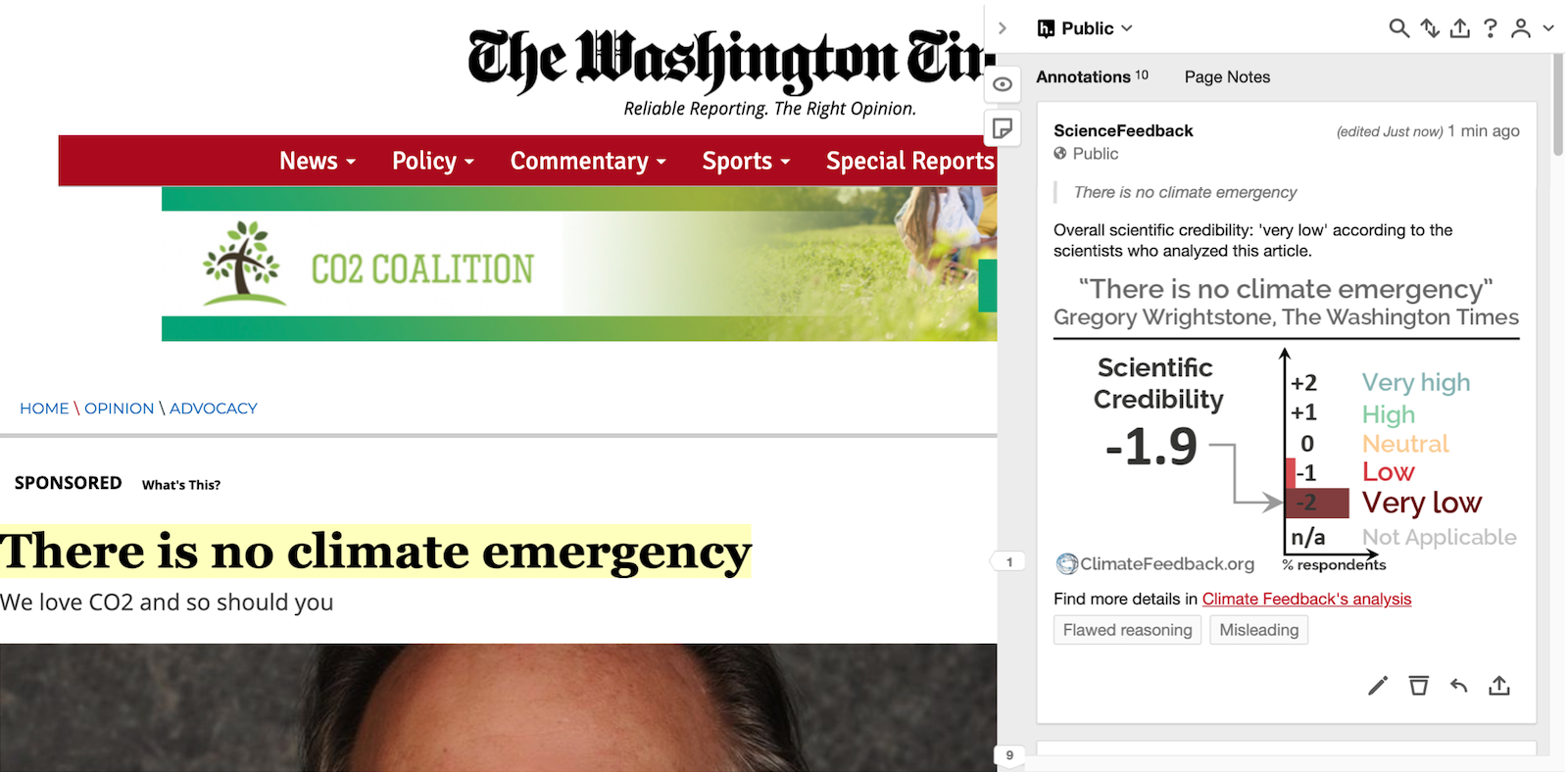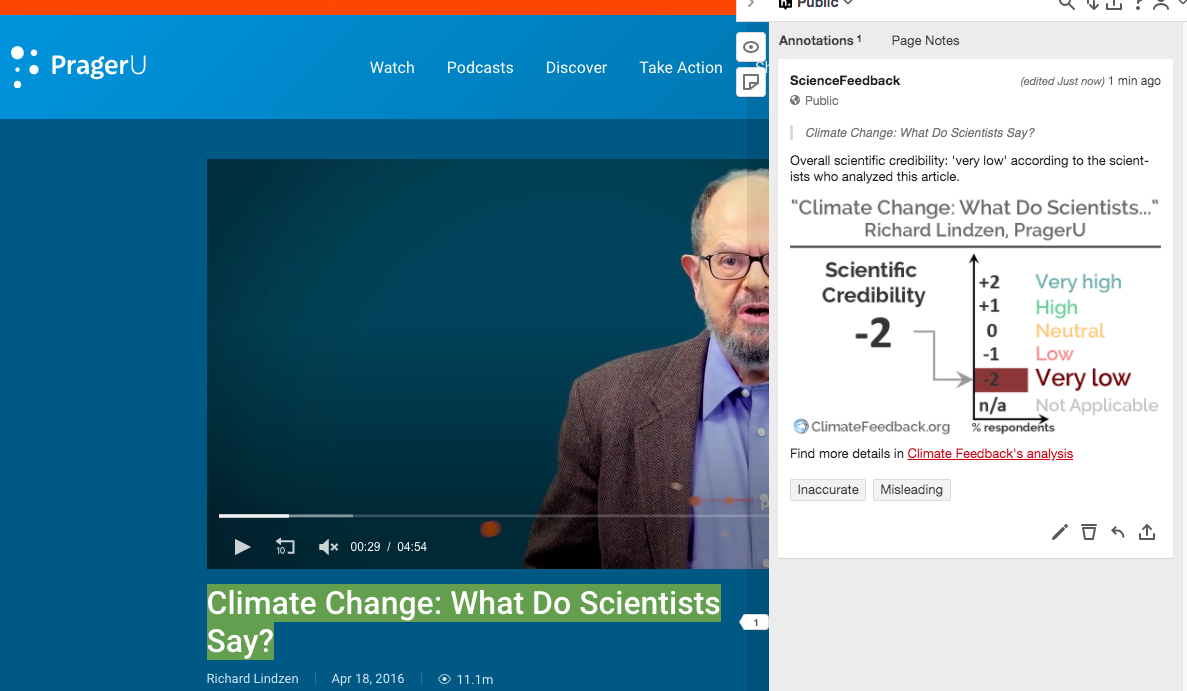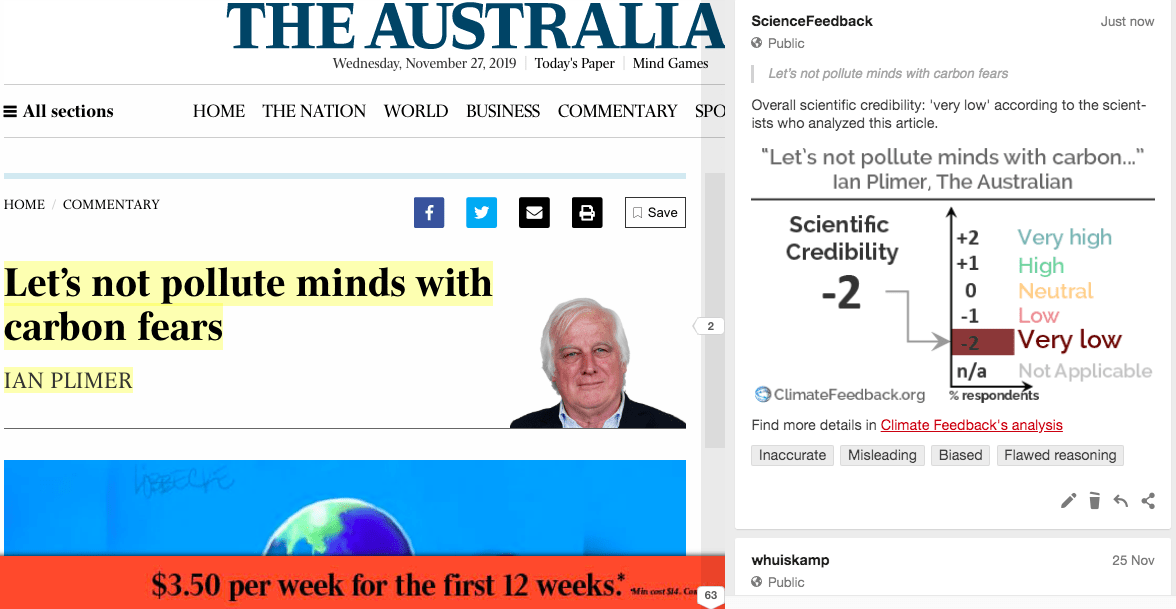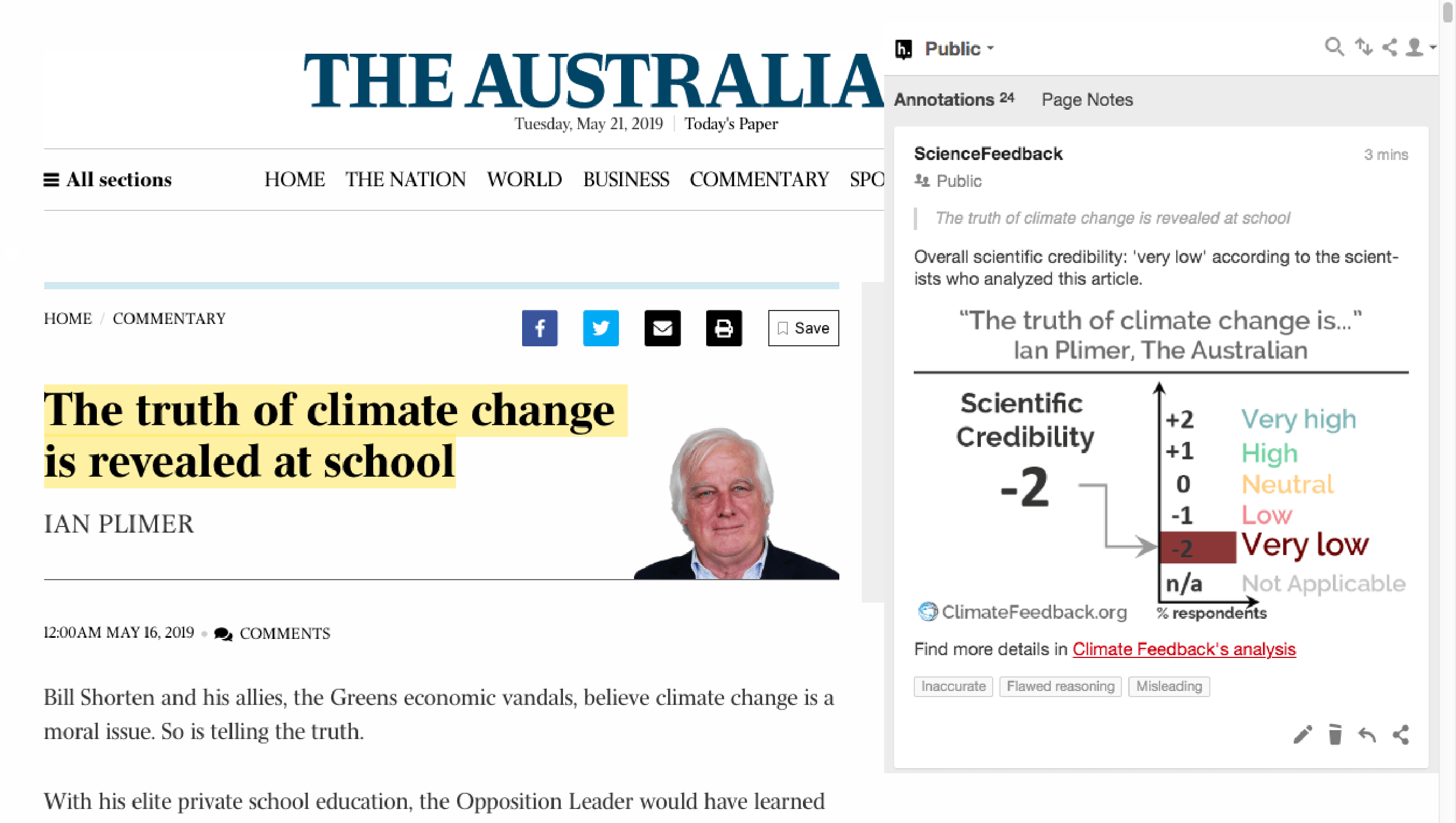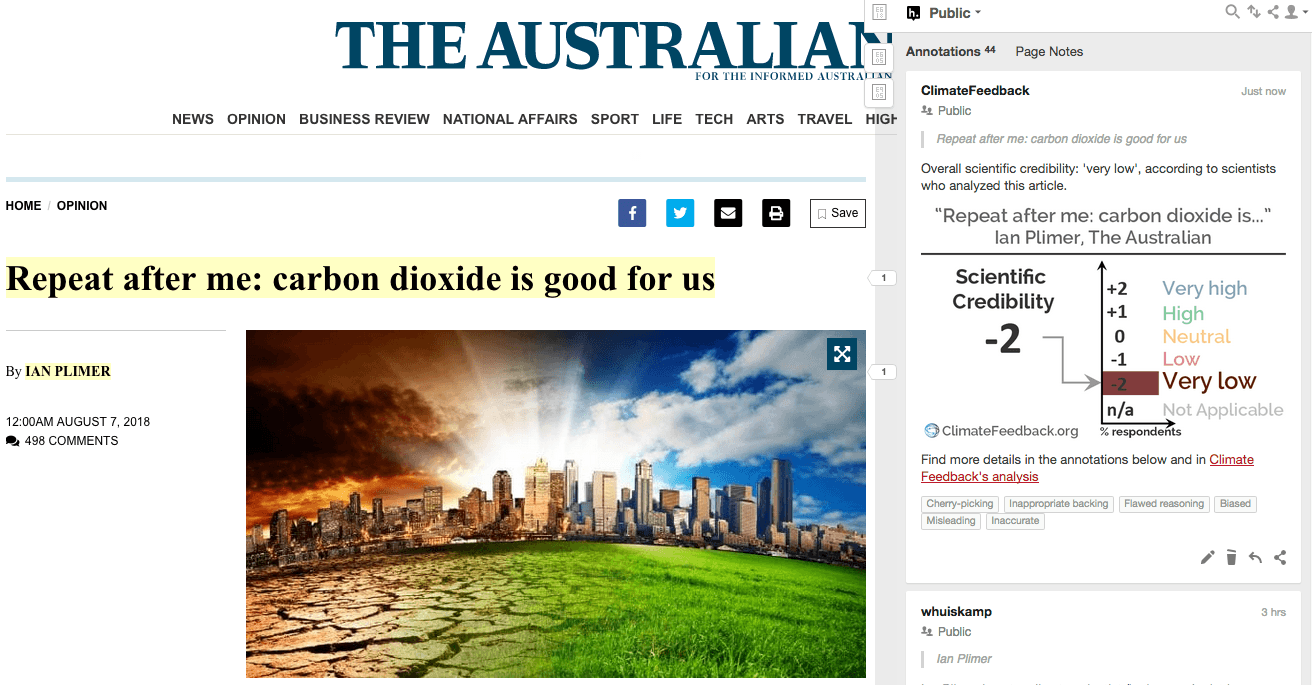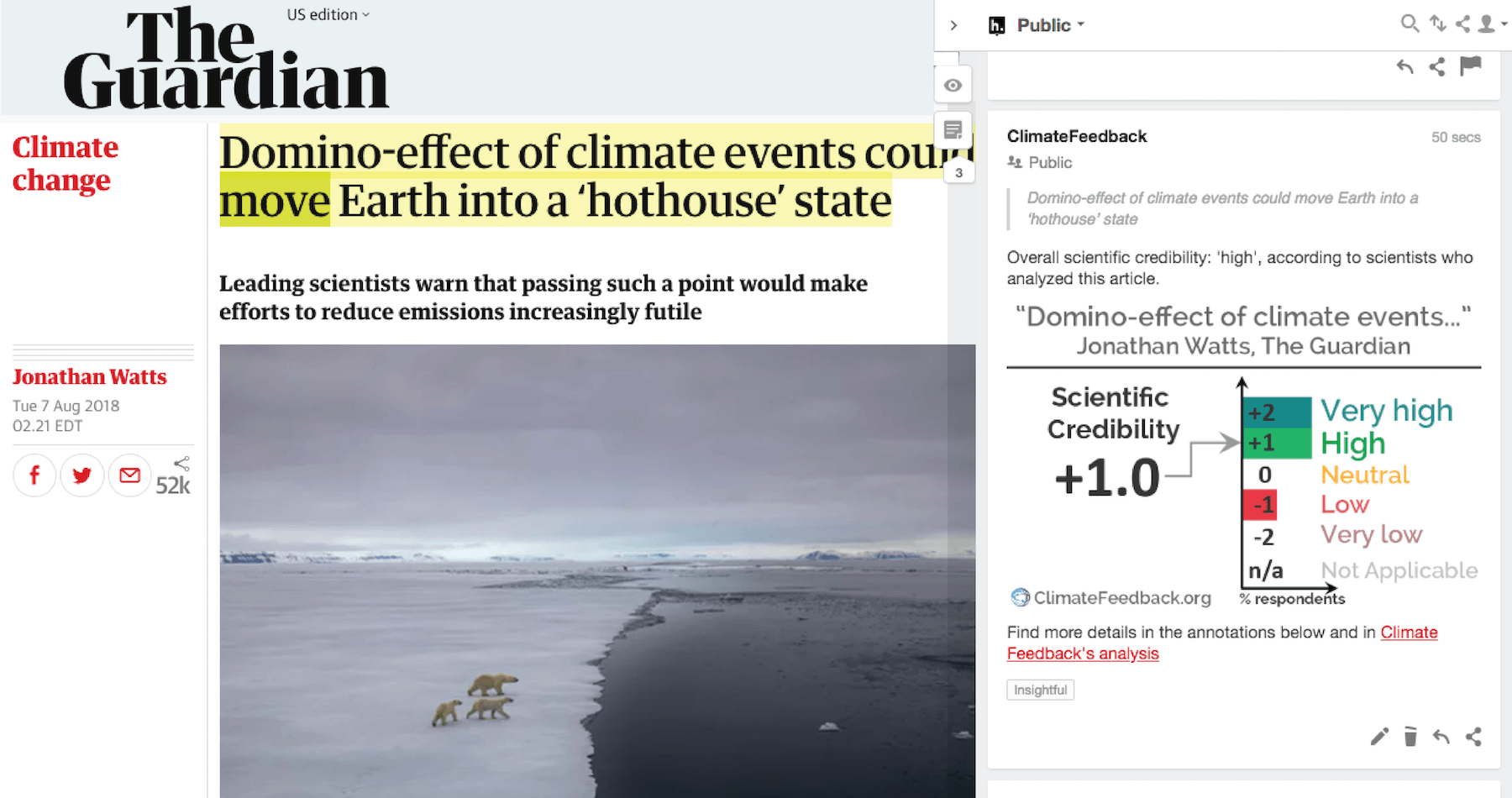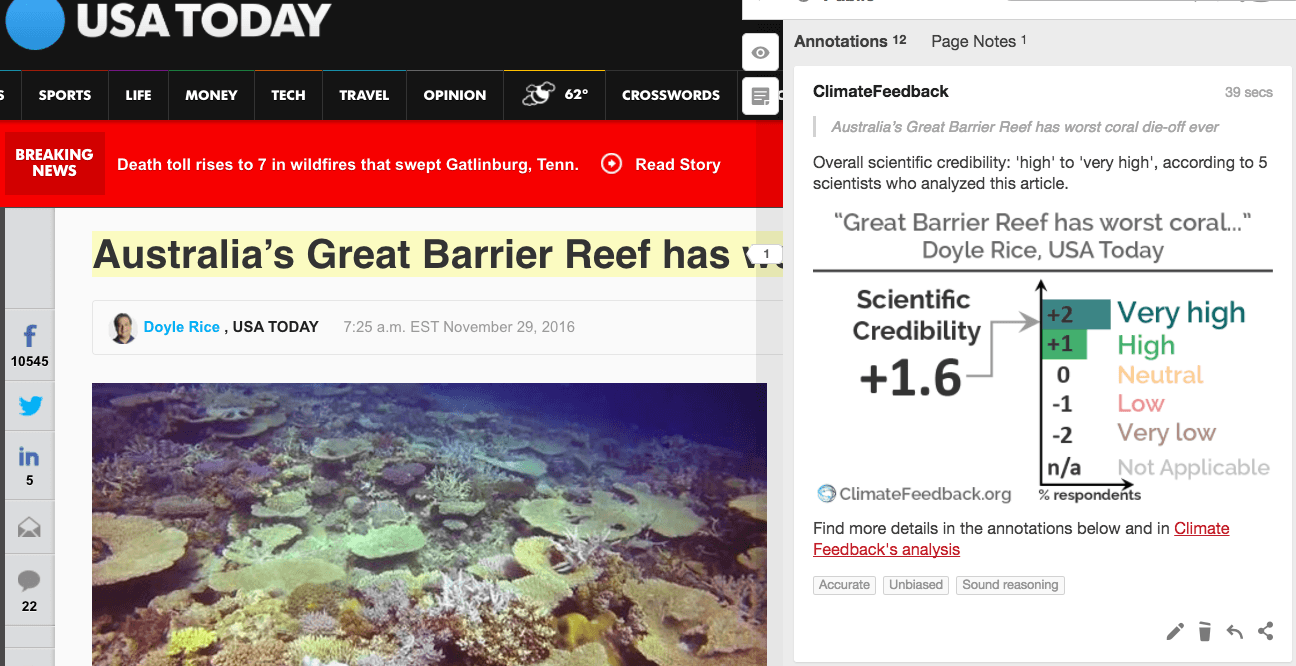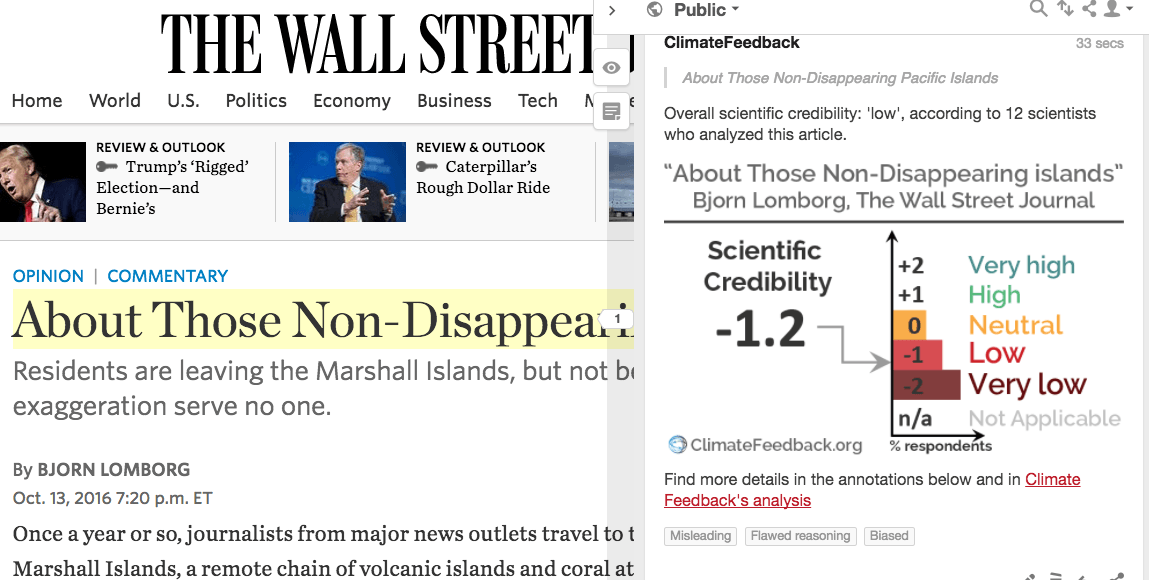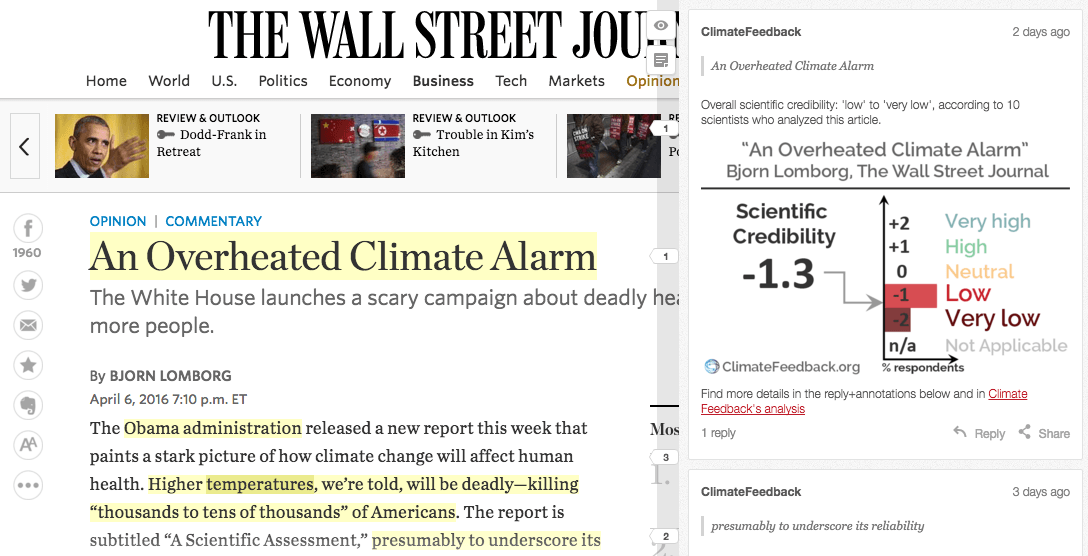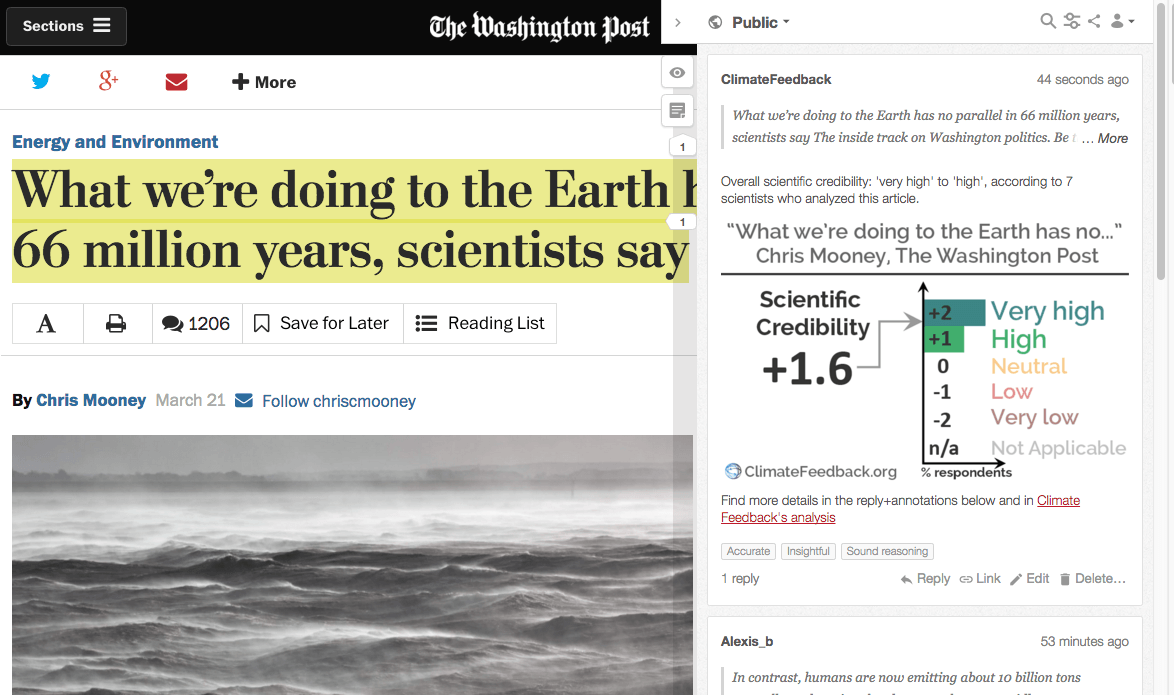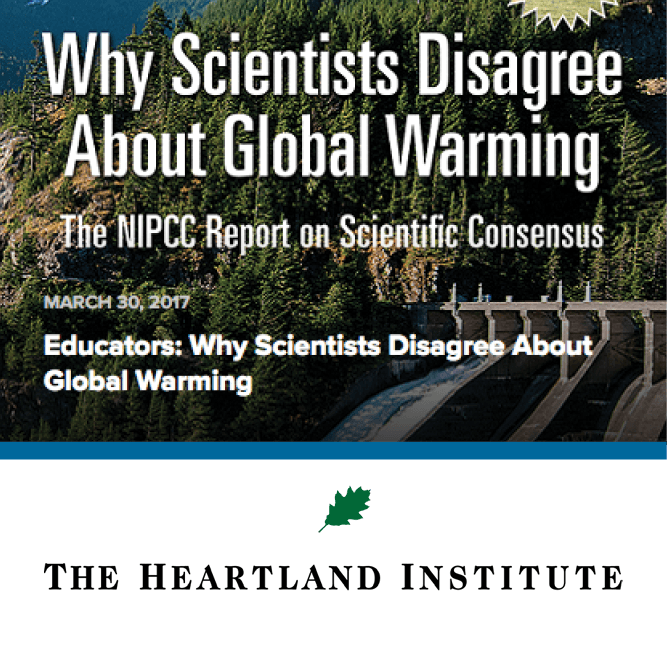.
Katrin Meissner
Professor, University of New South Wales
Expertise: Climate feedbacks, Physical oceanography, Carbon cycle, Paleoclimate
Details:
![]() Hypothesis handle: katrin
Hypothesis handle: katrin
Qualifying publication(s): see criteria
ARTICLES REVIEWED
CO2 coalition sponsored article in The Washington Times presents list of false and misleading statements about the impacts of CO2 and climate change
in The Washington Times, by Gregory Wrightstone
— 05 May 2021
Video from PragerU makes several incorrect and misleading claims about climate change
in PragerU, by Richard Lindzen
— 23 May 2020
Ian Plimer op-ed in The Australian again presents long list of false claims about climate
in The Australian, by Ian Plimer
— 26 Nov 2019
Commentary in The Australian by Ian Plimer relies on false claims to make its case
in The Australian, by Ian Plimer
— 20 May 2019
The Australian publishes “deeply ill-informed” opinion on climate by Ian Plimer
in The Australian, by Ian Plimer
— 09 Aug 2018
Guardian coverage of essay on potential of future “hothouse” climate is generally accurate, but misstates some details
in The Guardian, by Jonathan Watts
— 09 Aug 2018
Analysis of “Australia’s Great Barrier Reef has worst coral die-off ever”
in USA Today, by Doyle Rice
— 30 Nov 2016
Analysis of “About Those Non-Disappearing Pacific Islands”
in The Wall Street Journal, by Bjorn Lomborg
— 17 Oct 2016
Analysis of “An Overheated Climate Alarm”
in The Wall Street Journal, by Bjorn Lomborg
— 11 Apr 2016
Analysis of “What we’re doing to the Earth has no parallel in 66 million years, scientists say”
in The Washington Post, by Chris Mooney
— 23 Mar 2016
CLAIMS REVIEWED
Ian Plimer wrongly claims that carbon dioxide emissions do not cause climate change
SOURCE: Ian Plimer, The Australian
Published: 11 Aug 2018

Ian Plimer incorrectly claims human-caused emissions are short-lived
SOURCE: Ian Plimer, The Australian
Published: 11 Aug 2018

Prof. John Christy incorrectly claims to show climate models are too sensitive to carbon dioxide
SOURCE: John Christy, The Daily Caller
Published: 01 Dec 2017

Heartland Institute report’s claim that climate models are too sensitive to CO2 does not reflect evidence
SOURCE: Craig Idso, Robert Carter, S. Fred Singer, Heartland Institute
Published: 23 May 2017

The world’s coral reefs are severely threatened by climate change and other human impacts, as ABC story notes
SOURCE: Greg Hassall & Rebecca Latham, ABC News
Published: 27 Feb 2017


